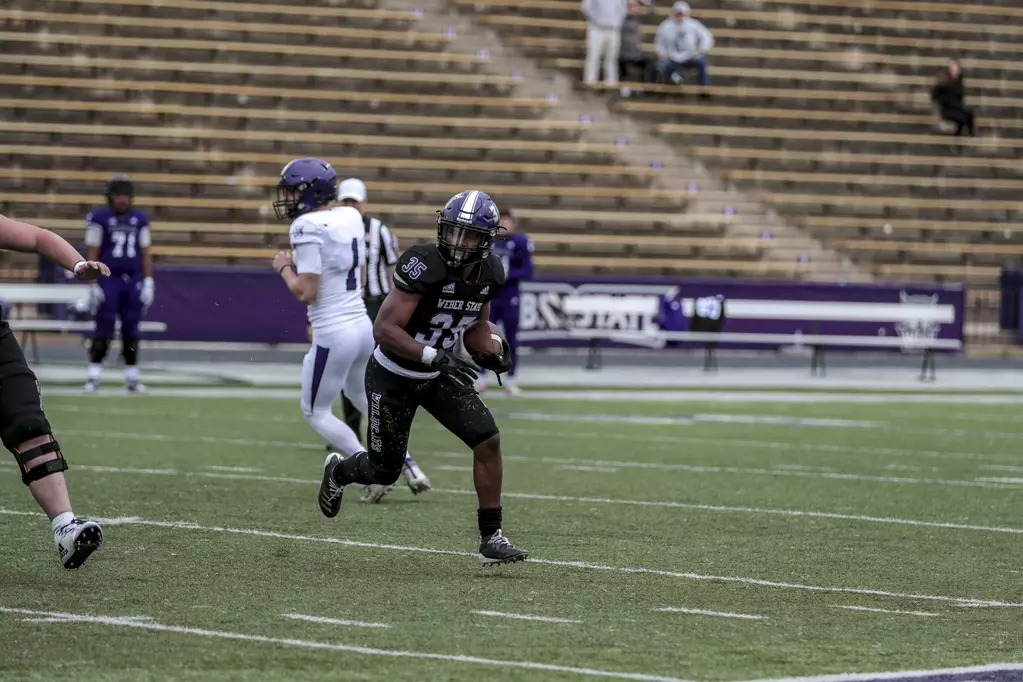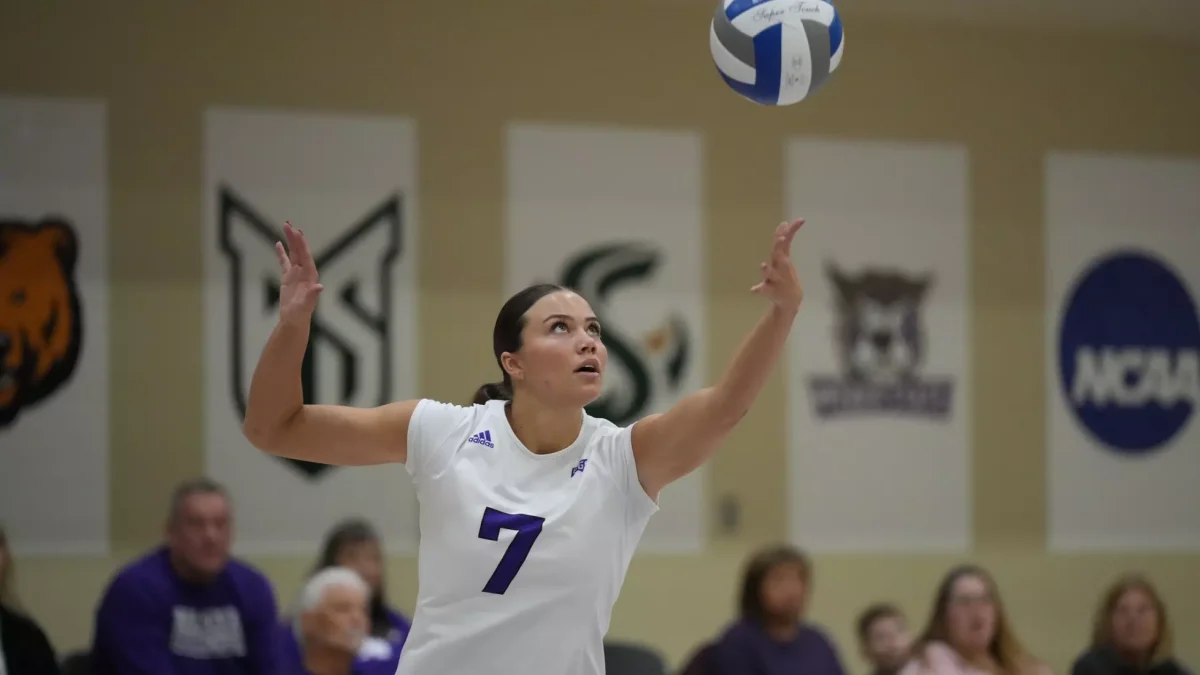
My Weber State experience started as a happy accident.
In 2015, I was searching for a job after a stint with Wells Fargo. I had applied to several positions with companies in Ogden and Salt Lake.
My father suggested I look for a position at Weber State, as he knew several people who worked for the university.
I will admit that I scoffed at the idea.
Why would I, a former BYU student and self-declared cosmopolitan, apply to work at what I saw as a glorified community college? I had no ill-will toward Weber, but it was not Utah State, the University of Utah or BYU.
I had also been working in the private sector. Why should I waste my talents in education?
However, I was looking for a job, and I was not getting anywhere, so I decided to access Weber’s jobs website and indiscriminately apply for several positions.
I figured I would take the proverbial “throw mud at the wall and see what sticks” approach. (Several years later, I would learn in COMM 2550 that this is a terrible method for seeking employment. Thanks, Dr. Ault!)
I finally got a job interview, but it was not with Weber. The accounting firm Deloitte had me visit their Salt Lake offices to interview for an administrative position. They certainly impressed me. I figured working for one of the “Big Four” auditors would present plenty of opportunity, and the offices were on the fourteenth floor of one of the shiny office towers downtown.
To my surprise, they offered me the position. I accepted without hesitation.
One week went by. Then two. Then three.
The recruiter was very apologetic. She explained that the end of the quarterly tax season was causing a backup in the necessary hiring approvals.
I had no problem with waiting.
Then I got a call from Brogan.
“Are you still interested in the administrative specialist position with Radiologic Sciences?” Brogan said.
I had no idea what she was talking about.
“Which company is this?” I said, rather embarrassed.
She explained that it was with Weber State.
I had totally forgotten. After all, more than 60 days had passed since I had applied to the Weber jobs. I figured it could not hurt, so I accepted the invitation to interview with the faculty and staff of the Department of Radiologic Sciences.
I can only imagine what the faculty and staff were thinking as I did my best to answer their interview questions and pretend I had an idea about what radiology was, or how to best help students succeed academically. (I was a mediocre student at BYU.)
I can honestly say that in the 45 minutes of interview time, I really did grow to like them. I felt that I would be able to fit in.
A couple of days later, they offered me the position.
It was hard to say no to Deloitte, but Weber presented its benefits. I really liked the Radiologic Sciences crew, and I would not have to commute to Salt Lake.
Within the first few weeks of working at Weber, I repented of my previously-elitist attitude. My boss and department chair, Dr. Walker, demonstrated that professors can be as pragmatic and forward-thinking as any business leader. He wanted all of us to dream big.
One of the most transcendental things I witnessed was that the professors personally cared about the success of their students.
The smarts and drive of my teammates in the department also inspired a sense of desiring excellence within myself. Working with students taught me how to evaluate my own scholarly habits.
I noticed that the students who succeeded in Radiologic Sciences were the ones who were smart, but did not act smart. Instead, they went out of their way to associate with the professors and to truly learn and understand the material. They learned with passion.
If I were an employer, I would have easily hired one of these Weber State students over any BYU or U of U student in a heartbeat.
My own conscience condemned me.
I had gone to college, but I did the bare minimum to succeed. I had not formed any meaningful networks of professionals or friends, and this is what had made my job searching so fruitless.
I figured that the best way to remedy the situation would be to learn how to learn, again. So, I enrolled in some courses at Weber State.
One of the first classes I took was a general education botany class. I was very nervous because it had been some time since I had taken a university course, and being a non-traditional student, I figured I would be an old man among a bunch of fresh-faced recent high school grads.
I quickly learned that I was not the only non-traditional student in the class, and I was not even the oldest student in the class. This gave me a view into the possibilities Weber State could present to folks who had a genuine desire to learn.
The course’s instructor, Dr. Root, did not simply recite PowerPoint slides full of facts and figures. She taught with gusto and she wanted every student to understand why we should at least be thinking about the implications of climate change.
That botany class was just a sampling of the educational excellence I would experience at Weber State.
Through my work on campus, I was able to participate in a study abroad trip to China, twice.
On a whim, I joined the Wildcat Investors Club. I had a small stock portfolio of my own, so I was curious what other students were doing with their investments. The club’s advisor, Dr. Fan was very welcoming, and she made sure that I, a communication major, would feel confident surrounded by business and finance majors. She even let me tag along on a club trip to New York City. The club was a great way of using the language of business in real-world applications.
Dr. Allred’s marketing class took the language of business a step further. He made it clear that we would not get by with mediocrity, and he challenged us to create our own marketing plans.
Dr. Ault taught me that research can be fun, and that critical thinking is one of the best skills a person can take away from college.
Professor Hess helped me to understand that I was not doing the world a favor by hiding my talents.
Dr. Norman showed me that I am a solid “okay” writer and that life is more meaningful when people ask difficult questions. She still rightly believes I need to lose my rose-colored glasses for life. (It was not all positive experiences. I had a professor who made me take a test at an on-campus testing center even though I was sick with the flu.)
Dr. Josephson (Dr. J!) helped me to realize that learning should be a life-long pursuit, and that I can take my education seriously without having to take myself too seriously.
There are countless other people, including the friends I made in my classes, who have forever influenced me for the better. I will cherish these relationships and opportunities for growth that Weber State has provided for me.
I have learned that college is much more about the journey than the destination.
Thanks to the relationships I formed at Weber and the skills the faculty helped me to obtain, I now have even greater opportunities awaiting me than I did back in 2015.
My choice to say “yes” to the interview with Radiologic Sciences was a happy accident, indeed.



















